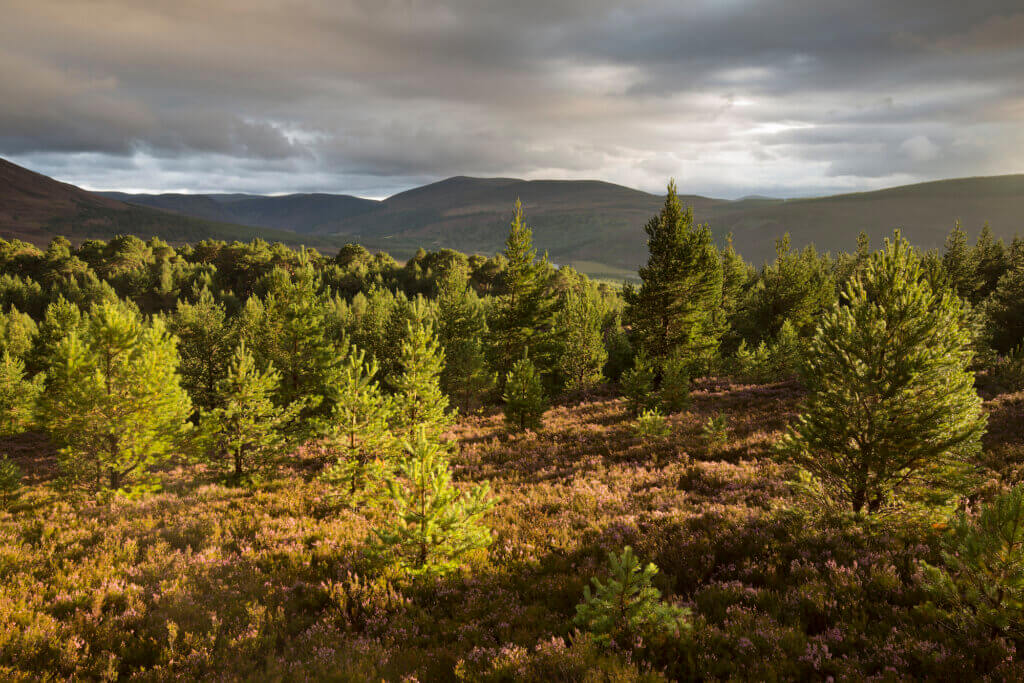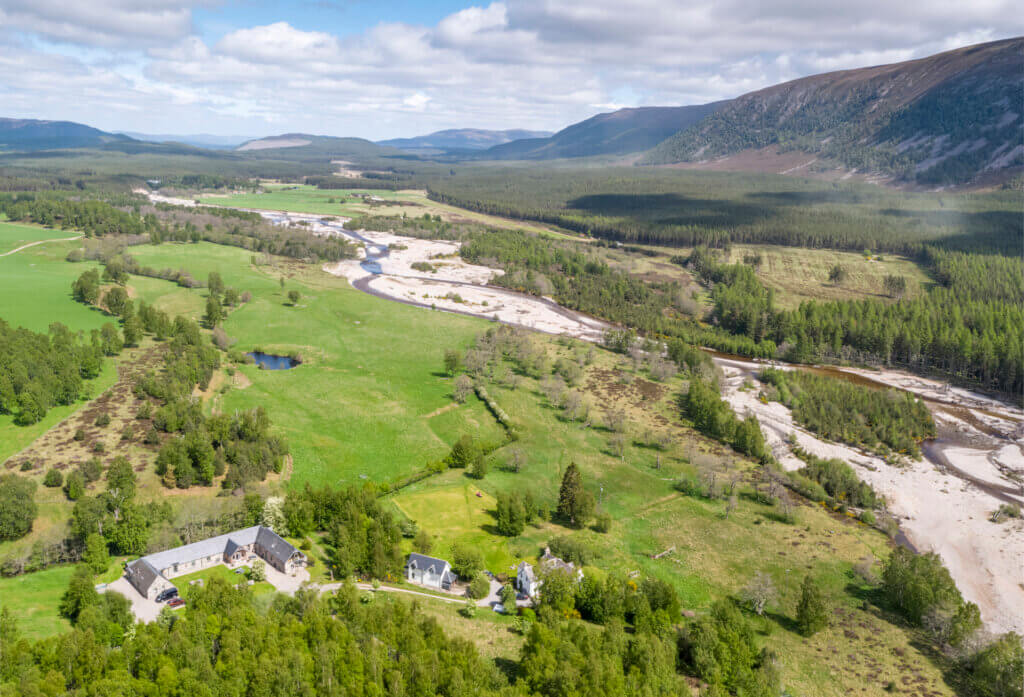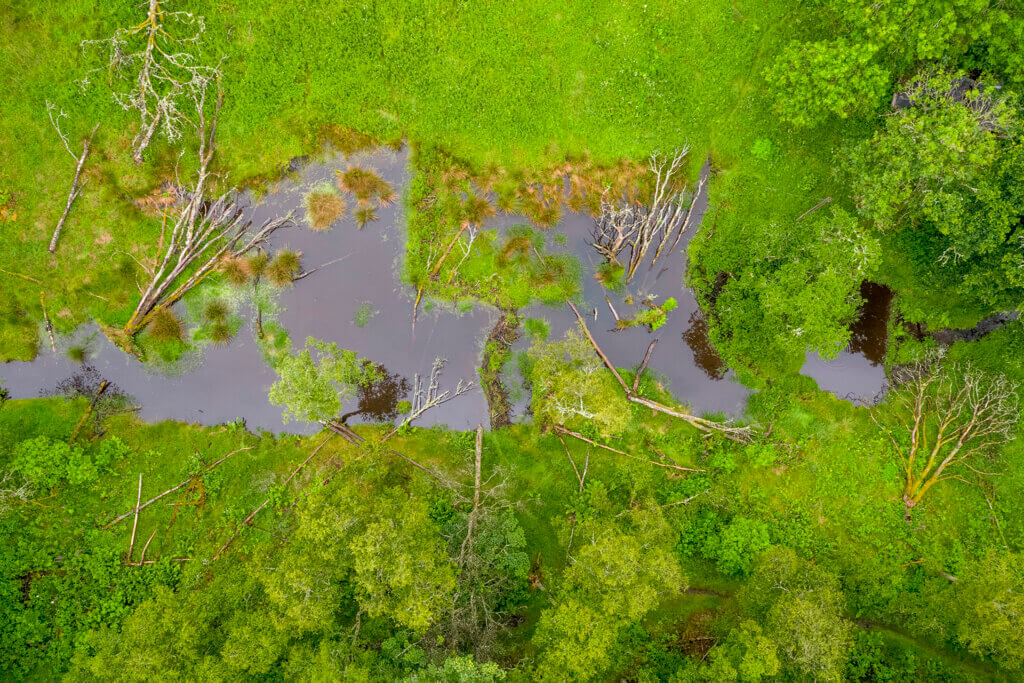Chain of rewilding ‘stepping stones’ to tackle Scotland’s nature and climate crises

A chain of nature-rich hotspots bringing together a diverse group of estates, farms, crofts and community-owned land is to be created across Scotland with a new rewilding network launched by charity SCOTLAND: The Big Picture.
The Northwoods Rewilding Network will allow more of Scotland’s many smaller landholdings of 50 to 1,000 acres to play a bigger role in restoring and connecting rich habitats full of life to boost declining species, tackle climate breakdown, and create new opportunities for rural communities.
Northwoods will complement Scotland’s major landscape-scale rewilding sites by filling in the gaps in local areas and joining together a tapestry of smaller nature recovery sites and wildlife corridors.
The 12 initial land partners include farms, crofts, small estates and a community woodland covering 3,500 acres between them. The project hopes to expand to at least 10,000 acres within two years.

“With Scotland’s nature in crisis, we want to harness the potential of smaller landholdings to come together. We need to scale-up nature restoration while highlighting the economic and social opportunities that rewilding brings for people,” said James Nairne, Northwoods’ Project Manager.
“Despite their beauty and drama, many of Scotland’s landscapes have been in ecological decline for a very long time, with many species extinct and others once prolific now teetering on the edge. Northwoods will help turn this around.”
Research in 2016 estimated that only 28 countries out of 218 have lost more biodiversity than the UK, with Scotland faring only slightly better than the UK average.
Rewilding – the large-scale restoration of nature – goes beyond protecting the fragments of nature now left. It restores vibrant living systems across woodlands, peatlands, wetlands, rivers, and at sea.

Land partners joining Northwoods will work to an agreed set of principles covering issues such as establishing native woodlands, restoring wetlands, and creating habitat for missing native species.
As well as enabling ecological change on the ground, Northwoods will develop sustainable nature-based business models, focusing on opportunities for local communities.
“We want to see vibrant, prosperous communities within nature-rich landscapes, as increasingly enjoyed across Europe,” said Peter Cairns, SCOTLAND: The Big Picture’s Executive Director.
The 12 initial Northwoods partners are: Argaty Red Kites, Carbeth Home Farm, and Little Drumquharn Farm in Stirlingshire; Ardura Community Forest on the Isle of Mull; Ballinlaggan Farm and Ballintean Farm in the Highlands; Bamff Wildland, Comrie Croft, and Upper Brae of Cultulich Farm in Perthshire; Drumadoon Farm on Arran; and Kinkell Byre in Fife.
SCOTLAND: The Big Picture has launched an appeal to raise £20,000 to help Northwoods develop over its first two years, with match-funding platform The Big Give to double every donation.
[registration_form]
Excellent!
Indeed it is excellent, however you only have to hint at a similar thing here in Wales to have the sheep mafia up in arms. They insist on no rewilding and no further reintroductions, one can only hope the politicians realise their huge land use and damage for a low percentage of GDP with of course a considerable degree of public money thrown in!
I don’t know how it is in Wales, but I will never understand it up here with Scottish people defending sheep farming given the sheep’s place in the ethnic cleansing of Scotland in the Clearances. Mind you, I don’t understand the support for the gamekeeper either, given the Victorian Lairds place following it either. We need to teach more of our own history in our schools.
If the people in Gloucestershire made the connection between the grazed to death Welsh hills that feed the young Severn with their racing run off and the 2007 two billion pounds in damage floods they had then I suspect it would be a different story. If I was still living in Gloucester I would be doing my best to raise hell about it – however, a letter to the Gloucester Citizen from Falkirk was the best I could do, no joy.
Wales is dire, really dire, they’re having a go at existing conservation work as being excessive before we get to no chance rewilding. I notice that even someone from Plaid Cymru got on the ‘rewilding will drive people from the land’ bandwagon to suck up to the locals, a party in the past that’s been held up in very high regard for progressive conservation/environmental policies.
There’s a young farmer up this way who already has a brilliant background in real conservation work, an incredibly nice and community spirited person too as is so often the case. He is planning to do a project involving beavers on his land. To drum up support he went to speak to a local climate action group, and when he got there found some farmers had wangled their way into it and subsequently were rather disruptive. He’s also had serious jip from the broader farming community. A very nice bloke trying to do a project on his land. It’s horrifying to think the situation is even worse in Wales.
The conservation organisations need to realise that the farmers that are the genuine article are with us, we’ll lose them if we don’t stand up to the likes of the NFU and their ilk, the latter have had far too long of the rest of the world being frightened to speak up against them because they are ‘poor’ farmers. I suspect the Welsh hill farmers are not too different rom the crofters I dealt with on Lewis, very bad news. Would Countryfile even entertain the notion of doing a programme about any of the issues raised in this comment? When it comes to certain areas of rural life democracy evaporates, truly scunnersome.
Meanwhile, ” In a blow to the aspirations of rewilders”, academics from Newcastle University have shown pictures to over 2000 members of the British public , to gain insight in to what sort of countryside they would prefer.
Pictures showing Wolves and Eagles were not too popular ( along with wind turbines, understandably), and it would seem that “what farmers and land managers wanted in the landscape was very similar to what the public wanted …. with no difference in how rural or urban residents wanted it to look “….. Shooting Times.
So dont waste your money.
Trapit – agreed, Shooting Times is a complete waste of money.
And even if that was true (and it won’t be), would the public’s supposed aesthetic preference take priority over putting trees and beavers back into the hills to stop houses and towns from getting flooded? Would that same public feel uplifted by watching footage of other people mopping out their homes, piling their sodden belongings out in the street to go to landfill? That’s what keeping the status quo means. A couple of years ago they had a debate on morning TV about rewilding and the rep from the NFU claimed it could start making the hills ‘look scruffy’. Yeah real high IQ stuff, our current virtually tree less hills are even pretty bad for the sheep that graze on them. Without shelter belts lambs suffer higher mortality via hypothermia and general heat loss, adult sheep suffer in the wind and rain too (and are less able to put on meat). But of course does any of that matter if main income is from grant and subsidies rather than sales?
Education Les, its slowly getting across, more small projects spread about will hasten this.
We have Dundreggan and the above appealing for matched funding at the moment, after Bamff last week, i just leave the card out ready lately.
It would get across a hell of a lot quicker if the RSPB or Woodland Trust embarked on a public information campaign to let people know there’s a very direct and significant relationship between the state of our uplands and flood risk in the lowlands. At a time of growing obesity and shocking levels of food wastage (plus money being tight for social spending) people through tax are subsidising intensive sheep farming in the marginal uplands that means we are nationally wildlife poor and flood prone – a lot of people are paying to increase their home’s flood risk. How many people are even aware of this far less get a chance to say whether they want it or not? Puts having to do a public consultation to translocate a few pine martens into perspective, double standards the only standards when it comes to conservation. I personally know some of the people doing these small projects, and have chipped in as best I can, and they aren’t being helped by this lack of grossly overdue national discussion on the true state of the land and how it could change for the better, apart for a tiny minority currently raking it in from the subsidy system while playing the down trodden pauper. These wonderful rewilding pioneers in fact would be doing a hell of a lot better if the mainstream conservation movement could find its cojones and act as if we live in a democracy.